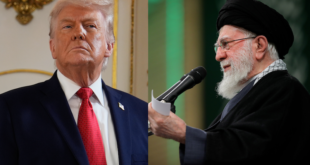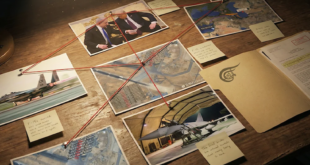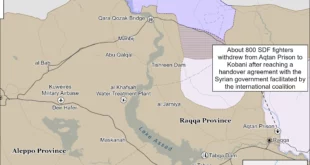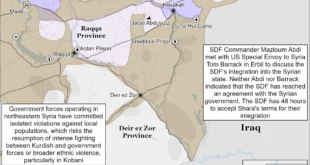 Supreme Council for the Islamic Revolution in Iraq (SCIRI) strongly rejected reports about its defection from Iran. The media bureau of the Supreme Islamic Iraqi Council, formerly SCIRI, issued a statement late Saturday correcting what it described as “suspicious remarks attributed to senior SCIRI officials” and “inaccurate analysis” made by media outlets, referring to reports that the party would distance itself from neighboring Iran.
Supreme Council for the Islamic Revolution in Iraq (SCIRI) strongly rejected reports about its defection from Iran. The media bureau of the Supreme Islamic Iraqi Council, formerly SCIRI, issued a statement late Saturday correcting what it described as “suspicious remarks attributed to senior SCIRI officials” and “inaccurate analysis” made by media outlets, referring to reports that the party would distance itself from neighboring Iran.
The statement said that SIIC wished to stress the independence of its political decision and that its new platform is not directed “against” anyone. SIIC would continue to reject the presence of any foreign terrorist groups in Iraq – a reference to the Iranian Mujahideen e-Khalq opposition group – and to respect the independence and sovereignty of neighboring countries.
“The Iraqi people will never forget the noble positions of certain countries around the world on Iraqi issues, especially the Islamic Republic of Iran, which supported and provided refuge for hundreds of thousands of Iraqis during the tyrannical rule of the Saddamist regime,” the statement underlined.
Several Western media organizations had reported Saturday that the changes in the powerful Shiite party’s platform would distance it from Iran and give it a more Iraqi “flavor,” a position that SIIC denied in this recent statement.
Armed Sunni extremists detonated explosives inside a small Shiite shrine in the border town of Mandali in the Diyala governorate, east of Baghdad, early Sunday, destroying most of it in the process, according to Voices of Iraq.
The police said that unidentified gunmen stormed into the shrine overnight, disarmed its guards, and planted explosives, which they detonated from a distance.
The shrine belonged to Al-Hassan Al-Muthanna ibn Al-Imam Ali Al-Hadi, son of the eleventh Shiite Imam and is highly revered by the townspeople, a mix of Arabs, Kurds and Turkmen, both Sunni and Shiite.
Mandali has so far witnessed very few insurgent attacks and almost no sectarian violence, due in part to its isolated location on Iraq’s eastern border with Iran. The attack brings the number of religious shrines and Husseiniyas destroyed by Sunni insurgents in the mixed Diyala governorate over the last two years to 77, according to statistics by the Shiite Endowments Board.
 Eurasia Press & News
Eurasia Press & News



